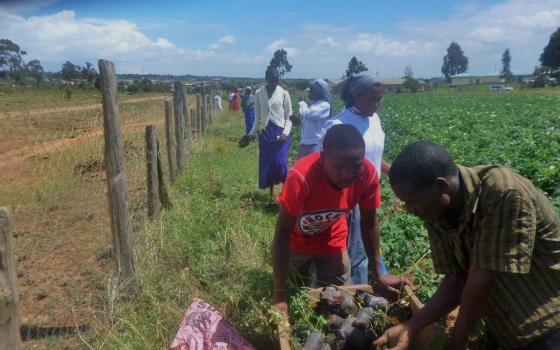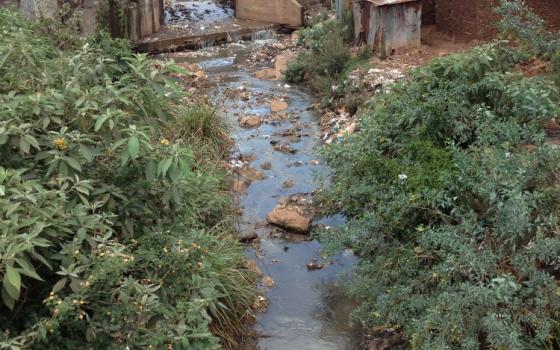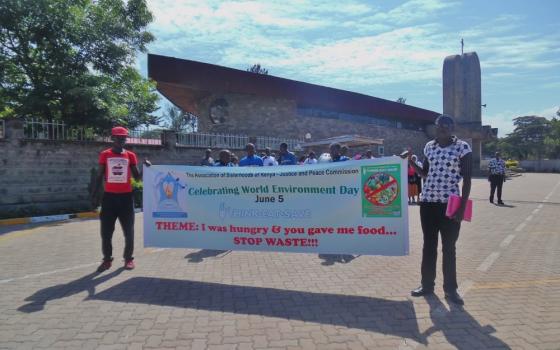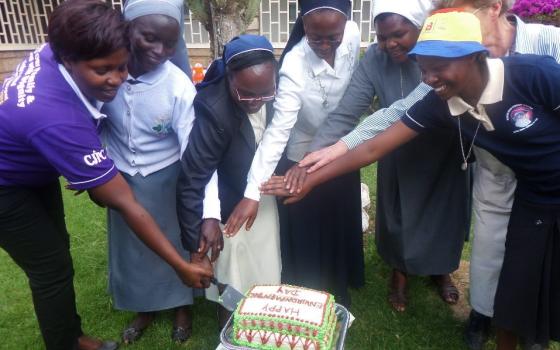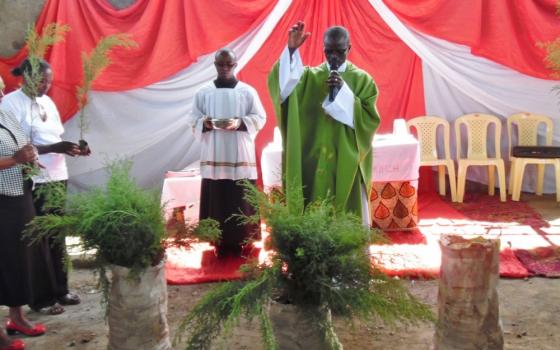I am delighted about Pope Francis’ first papal encyclical, “Laudato Sí, on Care for Our Common Home,” our mother Earth. What kind of Earth will we leave behind? I feel this as a very strong invitation from Pope Francis to go beyond our immediate needs, our comfort at the expense of generations yet unborn, and consider the future of our human race and planet.
I did not know how I and universe are one until I sat down one day for an exercise and tried to relocate myself apart from that which was around me — it was to no avail. I feel the intrinsic relationship between me and my environment. Environment is that to which I owe the air I breathe, the food I eat, the earth that holds me up. It is about you and me. It is about us and our home. The ecological systems are a single unit. You ruin it, you kill me — we kill each other. Care for the environment is a justice issue.
Anything I do has an impact on nature. Nairobi, sometimes described as the most modern and beautiful city in the region, has its own ugly tale: the heaps of garbage that are found in some slums like Kibera and Mathare Valley. Unfortunately this is not only a Kenyan story, it is a familiar site in most of the developing world. This is a constant reminder of the fading sense of dignity of the human person, for both the consumers who generate so much waste and for the people who live close to these garbage sites.
God in the book of Genesis commanded man to care for the Earth (Gen 1:28). He placed the Earth he had beautifully made, that had pleased his eyes, into our hands. The writer of the book of Genesis was not certainly an environmental activist; the writing was about his relation to God and himself. It is about faith for those who believe. So it is a religious obligation to maintain the harmony of creation.
This religious obligation has been overshadowed by the same gift given to us, the gift of human creativity and innovation. It is soiled by the fall, by Cain’s generation, his protest, “Am I my brother’s keeper?” (Gen 4:9). Human beings are torn between two realities, development and self-destruction. While we enjoy modernization, we bewail moral decadence. We celebrate connectedness in the global village and bewail social alienation. Families are at stake.
The rich grow richer, and the poor poorer. The desert, high temperatures and floods incomparable to that of Noah’s day all encroach us from every side; our natural habitation and all its wealth is decaying and we almost consciously see our end — but unfortunately to no, or only to minimal, alarm. Thus it has become a moral obligation to care for the environment.
St. Francis’ “Canticle of Creatures” invites us to give voice to creation to praise God, and through creation, to exalt in the creator: “laudato sí.” We must not interfere with nor silence creation; we shall be silencing ourselves. I wonder what alternative development we could be doing, what developers can undertake that would not destroy the environment?
Before it becomes a government issue, truly caring for the environment is a community and personal issue all must be involved in. I am glad that the pope stressed the responsibilities of those who make our laws and applied this principle in relation to the common good. Governments must act.
Unless catechesis, homilies and school syllabuses at every level are environment oriented, nothing will change. We must use all available resources to develop and impart a culture that is environment oriented. Then there will be no littering, no felling of trees, no abuse of human life, and peace will prevail. And hopefully St. Paul’s dream will be fulfilled, creation will cease to groan at the revelation of children of God (Rom 9:18). Human nature too is groaning, awaiting liberation.
There is great hope that you and I have been touched by this papal encyclical and are ready to change our lifestyle.
[Sr. Agnes Wamuyu Ngure is an Elizabethan Sister currently serving as the executive secretary of the Association of Sisterhoods of Kenya.]
